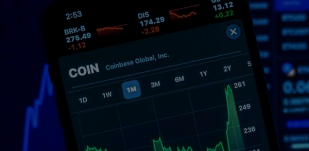A Quick Guide to Exporting to Europe
Exports are big business in the UK. In 2021, international sales of products and services totalled £625 billion, with the EU accounting for 42% of this sum. However, since Brexit and the UK’s departure from the European Union and single market, sending goods to Europe has become more challenging. Failure to follow new regulations is causing many UK exporters to suffer delays, added costs and even loss of customers.
The golden rule of pain-free exporting is thorough preparation. Don’t get caught in the paperwork tangle. Follow this guide to ensure your European exports arrive without a hitch.
How to export goods from the UK to Europe
Exporting goods from the UK to Europe is a complicated process, involving a series of key procedures you must accurately follow:
1. Are you permanently exporting the goods?
If you are moving goods out of the UK permanently, follow the steps below. If you are sending goods to Europe on a temporary basis, or if you are exporting to Northern Ireland, sending goods through the post, or exporting a small amount of goods to personally sell, different rules apply.
2. Obtain any export licences you may need
Many goods require a special licence to export abroad, including animals and animal products, plants and plant products, chemicals, drugs, medicines, and medical devices. Shipping these kind of goods without a licence is illegal and could bring a fine and see the goods seized and destroyed. You can find the full list of reserved goods and how to get your licences here.
3. Get your EORI export business number
You must have a UK EORI number to export goods abroad. This is your Economic Operator Registration and Identification number. If you don’t have one, you can register here.
4. Make sure the buyer can import the goods
Depending on which nation in Europe you are exporting to, and what goods you are shipping, your buyer may need to make an import declaration in their country or secure a special import licence or certificate. Ensure the buyer can legally take your goods before you ship them.
5. Classify your goods with a commodity code
All exports from the UK must have a Harmonised System (HS) tariff code and a description in plain English of the goods. (Find UK HS codes here).
6. Complete your Commercial Invoice
Your Commercial Invoice is the most important piece of paper in the transaction. Customs will use this to determine legality, duties, tariffs, and who the seller and buyer are. The Commercial Invoice and any licences or certificates must travel with the goods. When filling in the value of your goods on the invoice, use the price you’re selling them for and indicate the currency you are billing in. (For more details, see our tips on completing a Commercial Invoice).
You may need proof of origin if exporting to a country where your goods have a reduced or zero rate of duty. Get proof of origin for your goods. You might also be able to zero rate the goods for VAT. This means you can charge your customers VAT at 0%. Check if you can zero rate the goods for VAT.
7. Ship your goods through customs
Your goods will need a Customs Declaration and clearance by UK Customs before they leave the country. If you are using an export agent, they will take care of your export declaration and Customs clearance. If you are shipping yourself, you can discover the full process for making an export declaration and securing clearance here.
You may need other documentation to get your goods through Customs in the destination country. Ask your customer if any special paperwork is required.
If your goods are rejected by Customs at the receiving end, you will need to recover them. Find out how to do this here.
8. Keep all records for inspection
Keep copies of your Commercial Invoice(s) and other transaction documentation, such as letter of credit, insurance, and any special licences or certificates. They may be inspected later.
Which currency should I bill my international customer in?
Billing your customer in a foreign currency exposes you to the risk of currency fluctuation. Shifting values could mean your goods are worth less when they arrive than when you shipped them. Alternatively, you can invoice in your own currency and pass the risk to the buyer. But this could make you less competitive. If you decide to invoice in a foreign currency, lower the risk by setting the exchange rate at the point of sale, charging more to cover losses, or hedging the currency at a fixed rate using a forward contract.
Follow the golden rule and exports can still bring great rewards
Brexit may have complicated the UK’s trade relationship with Europe, but import/export businesses who take care with the documentation and work with the right shipping and currency specialists, can still maintain a flourishing sales operation with European buyers. In short, getting all your export ducks in a row can still deliver the golden goose.
Control your export currencies with the experts in foreign exchange
Get on the right side of currency fluctuation and buy and sell international currencies at the best possible price. Talk to Clear Currency for trusted foreign exchange guidance: get in touch today.
Related Articles
How to Mitigate Foreign Exchange Risk
Currency risk can have a significant effect on the efficiency and profitability of any international business. Each exchange rate movement affects how much you receive from sales and what you pay to suppliers.
Read more
Moving to Dubai from the UK: Checklist
You’re ready for a new life overseas and have decided you’re moving to Dubai. Now it’s time to consider the various costs involved, from your visa and accommodation, to health insurance, shipping your belongings and bringing your beloved pets along too.
Read more
Currency Outlook Quarter 1 2023
Clear Currency looks back at the performance of the US dollar, euro and sterling in Q4 2022, and assesses what might be in store for Q1 2023.
Read more


